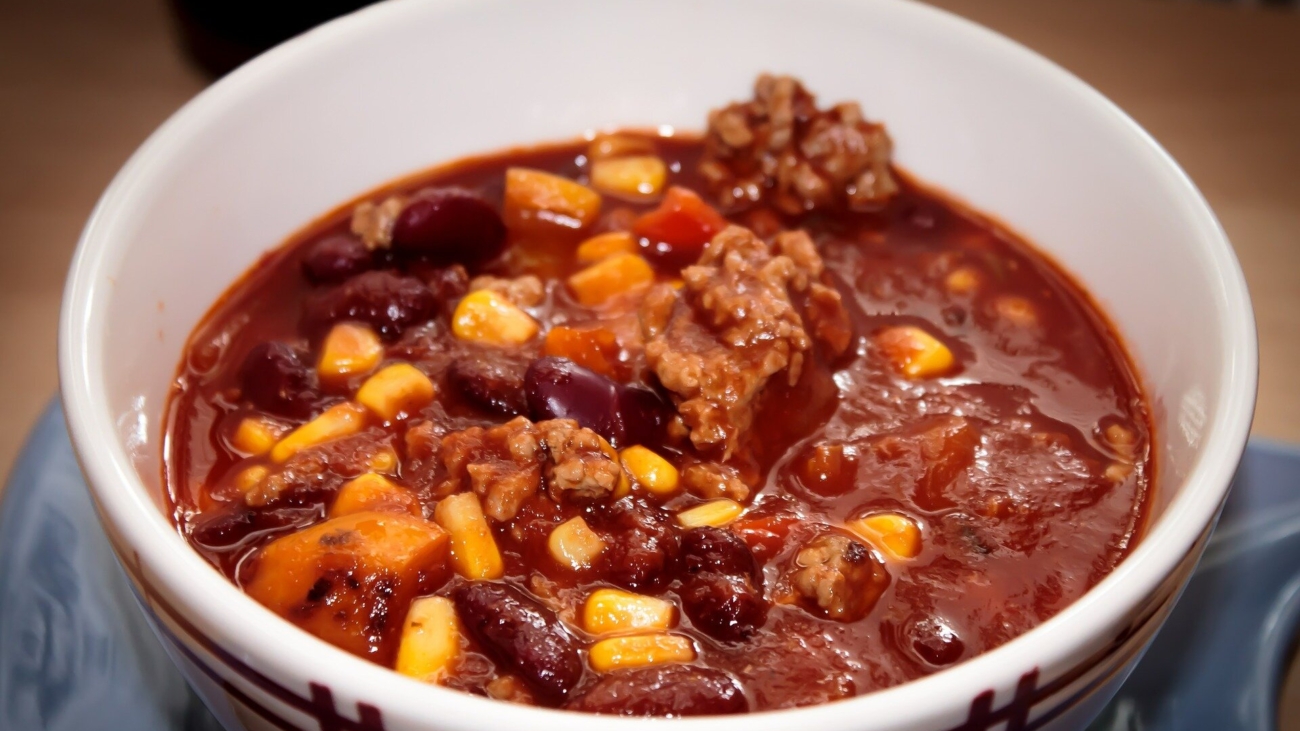
As lean sources of protein, complex carbohydrates and fiber, beans are known worldwide as providing lots of nutritional power at a very affordable price. Now, a University at Buffalo study suggests that when consumed in chili during pregnancy, beans may help lower one’s risk for gestational diabetes.
The study is published in Nutrients.
While the UB researchers caution that the study was relatively small and must be replicated in a larger cohort, they note that the findings are important, given the steady increase in gestational diabetes. Recent national data from the Centers for Disease Control and Prevention shows that the prevalence of gestational diabetes in the U.S. increased from 6% in 2016 to 8.3% in 2021.
Gestational diabetes is diabetes that is initially diagnosed during pregnancy; if untreated, it can adversely affect the health of both mother and baby. While it often goes away after pregnancy, it can put the mother at higher risk of developing type 2 diabetes later in life. Risk factors include pre-pregnancy obesity, excessive weight gain during pregnancy, advanced maternal age, unhealthy diet, insufficient physical activity, and COVID-19.
Beans can improve glycemic control
Because of their excellent nutritional profile, beans and their possible health benefits during pregnancy were of interest to the UB researchers. Previous studies have shown that diets high in beans and other legumes can lead to healthier levels of blood sugars and significantly lower the risk of developing Type 2 diabetes, possibly because of their high fiber content and other beneficial components. However, few studies have focused on how they might affect gestational diabetes, especially in individuals eating a typical American diet.
“Our research aimed to study the roles of bean consumption in gestational diabetes, including chili, dried beans and bean soup,” says Xiaozhong Wen, MD, Ph.D., first author and associate professor of pediatrics in the Division of Behavioral Medicine in the Jacobs School of Medicine and Biomedical Sciences at UB. “Interestingly, only chili consumption was statistically significantly associated with the risk of gestational diabetes.”
The researchers found that pregnant women who ate chili once per month had a 3.5% risk of developing gestational diabetes, compared to 7.4% for expectant mothers who never ate chili.
Capsaicin and phenolic compounds
The reasons that only chili was found to be associated with a low risk of gestational diabetes are not yet understood. However, the researchers note that some of the components that may be specific to chili, such as capsaicin, an extract of chili powder, and phenolic compounds in beans, especially the dark beans typically used in chili, have been linked to improved blood sugars.
“Both human and animal studies have shown that capsaicin and phenolic compounds have some potential benefits of improving glycemic control through slowing glucose absorption and increasing insulin secretion and/or insulin sensitivity,” says Wen.
The study included 1,397 pregnant women and was based on a secondary data analysis within a U.S. national cohort study named Infant Feeding Practices Study II, which was conducted by the Food and Drug Administration in collaboration with the CDC. It enrolled mothers in late pregnancy and followed them and their infants up to 12 months postpartum.
Wen says the research findings must be replicated in larger cohorts with more diverse populations, detailed measures of bean consumption and dietary intake information collected more frequently and a randomized controlled design.
He adds that given the non-causal nature of observational research, recall bias and selection bias, the findings should be interpreted cautiously.
So, should pregnant individuals, especially those who might be at risk of developing gestational diabetes, consider adding chili into their diets?
“Moderate chili consumption may be incorporated into a balanced diet approach to addressing gestational diabetes, along with other clinical recommendations, such as early screening, diagnosis, exercise and medications as needed,” says Wen.
Todd C. Rideout, Ph.D., associate professor of exercise and nutrition sciences in the School of Public Health and Health Professions, is co-principal investigator. Additional UB co-authors include: Fatima Makama, Ryan Buzby, Jeremy Nguyen, Rose Durnell, Iyobosa Ekhator and Daren Chan.
More information:
Xiaozhong Wen et al, Moderate Chili Consumption During Pregnancy Is Associated with a Low Risk of Gestational Diabetes (GDM), Nutrients (2025). DOI: 10.3390/nu17061025
Citation:
Could eating chili during pregnancy help lower the risk of gestational diabetes? A study says it’s possible (2025, March 24)
retrieved 24 March 2025
from https://medicalxpress.com/news/2025-03-chili-pregnancy-gestational-diabetes.html
This document is subject to copyright. Apart from any fair dealing for the purpose of private study or research, no
part may be reproduced without the written permission. The content is provided for information purposes only.



Add a Comment